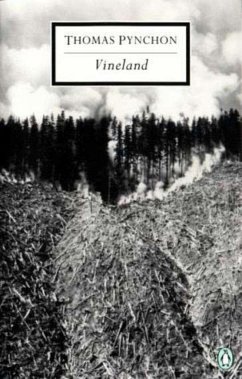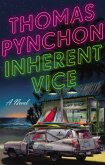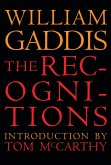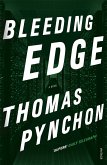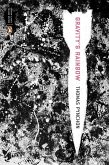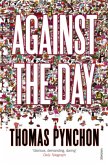A group of Americans in Northern California in 1984 are struggling with the consequences of their lives in the sixties, still run by the passions of those times -- sexual and political -- which have refused to die. Among them is Zoyd Wheeler who is preparing for his annual act of televised insanity (for which he receives a government stipend) when an unwelcome face appears from out of his past. An old nemesis, federal prosecutor Brock Vond, storms into Vineland at the head of a heavily armed strike force. Soon Zoyd and his daughter, Prairie, go into hiding while Vond begins a relationship with Zoyd's ex-wife and uses Prairie as a pawn against the mother she never knew she had. Part daytime drama, part political thriller, Vineland is a strange evocation of a twentieth-century America headed for a less than harmonic future.
"Quite simply, one of those books that will make this world - our world, our daily chemical-preservatice, plastic-wrapped bread - a little more tolerable, a little more human . . . [Pynchon's] voice - absolutely unmistakeable and absolutely inimitable . . . is the American voice of the late twentieth century." —Frank McConnell, Los Angeles Times Book Review "Later than usual one summer morning in 1984 . . ." On California's fog-hung North Coast, the enchanted redwood groves of Vineland County harbor a wild assortment of Sixties survivors and refugees from the "Nixonian Reaction," still struggling with the consequences of their past lives. Aging hippie freak Zoyd Wheeler is revving up for his annual act of televised insanity when news reaches him that his old nemesis, sinister Federal agent Brock Vond, has come storming into Vineland at the head of a heavily armed Justice Department strike force. Zoyd instantly disappears underground, but not before dispatching his teenage daughter Prairie on a dark odyssey into her secret, unspeakable past . . . Freely combining disparate elements from American pop culture - spy thrillers, Ninja potboilers, TV soap operas, sci-fi fantasies - Vineland emerges as what Salman Rushdie has called in the New York Times Book Review "that rarest of birds: a major political novel about what America has been doing to itself, to its children, all these many years."
"Quite simply, one of those books that will make this world - our world, our daily chemical-preservatice, plastic-wrapped bread - a little more tolerable, a little more human . . . [Pynchon's] voice - absolutely unmistakeable and absolutely inimitable . . . is the American voice of the late twentieth century." —Frank McConnell, Los Angeles Times Book Review "Later than usual one summer morning in 1984 . . ." On California's fog-hung North Coast, the enchanted redwood groves of Vineland County harbor a wild assortment of Sixties survivors and refugees from the "Nixonian Reaction," still struggling with the consequences of their past lives. Aging hippie freak Zoyd Wheeler is revving up for his annual act of televised insanity when news reaches him that his old nemesis, sinister Federal agent Brock Vond, has come storming into Vineland at the head of a heavily armed Justice Department strike force. Zoyd instantly disappears underground, but not before dispatching his teenage daughter Prairie on a dark odyssey into her secret, unspeakable past . . . Freely combining disparate elements from American pop culture - spy thrillers, Ninja potboilers, TV soap operas, sci-fi fantasies - Vineland emerges as what Salman Rushdie has called in the New York Times Book Review "that rarest of birds: a major political novel about what America has been doing to itself, to its children, all these many years."

